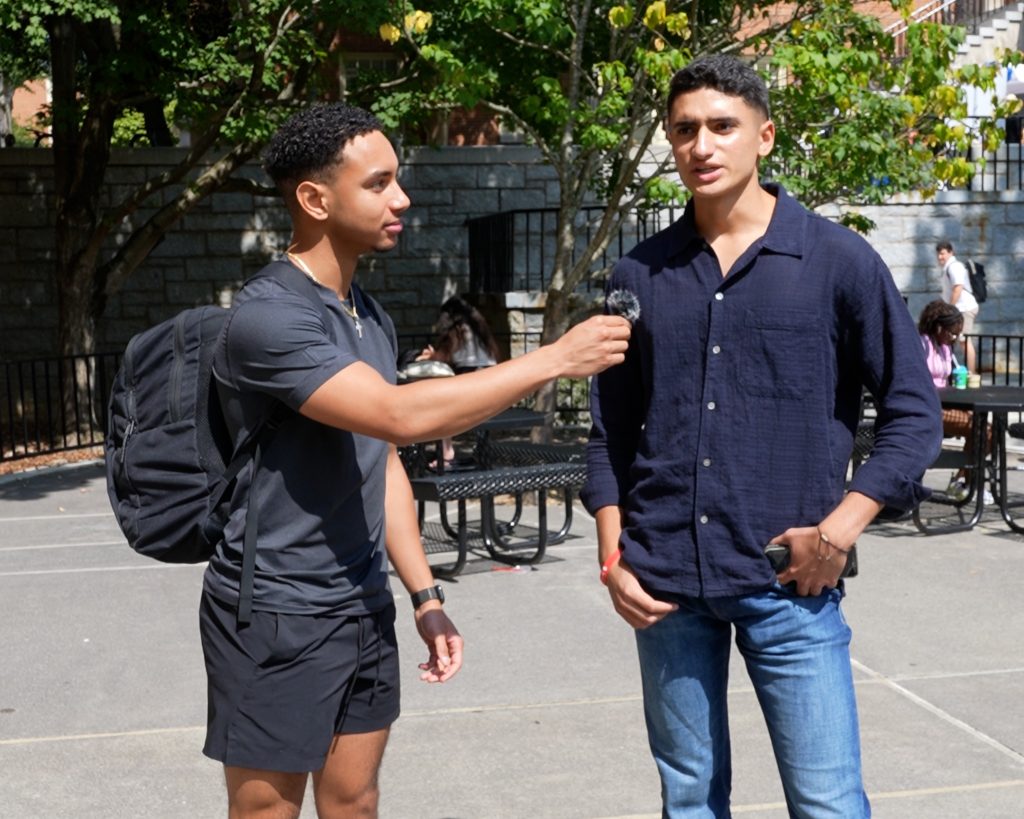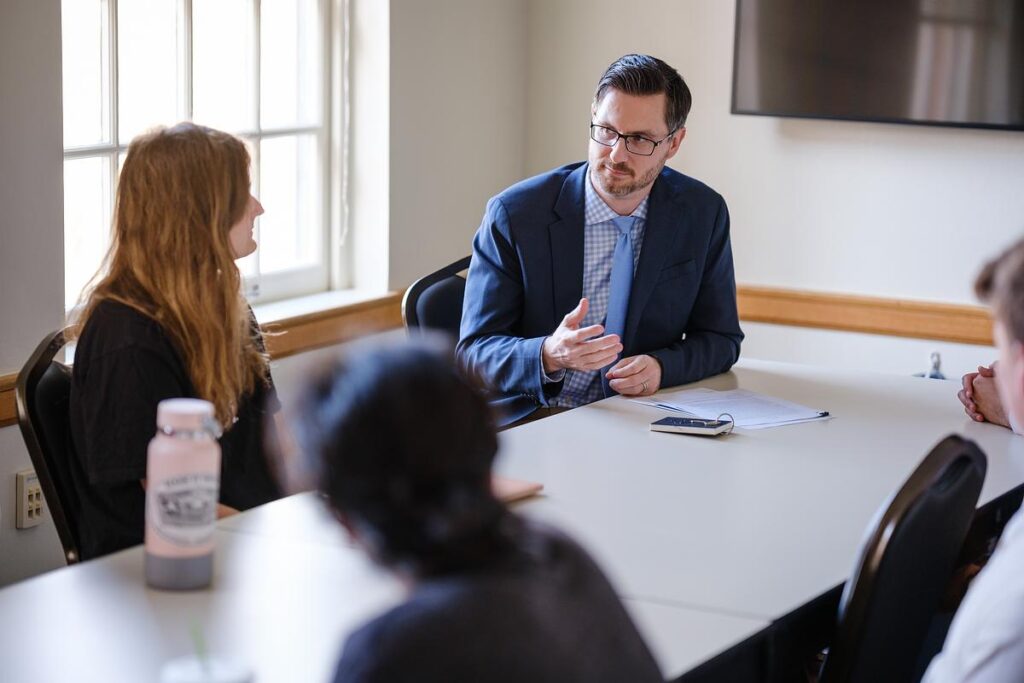What Is College For? A Discussion Group Helps Students Figure It Out

What is college for?
At the beginning of the 2025 Fall Semester, Mason Goodwyn (’25), one of our Leadership and Character Scholars (and recently-named homecoming king), went out on the Wake Forest University campus to pose that question to his fellow students. Among their responses:
- “I think it’s for experiences and developing yourself to be a better person and to be the best version of yourself.”
- “To get my education and make new friends and get connections.”
- “To get an education, to better yourself, to grow and learn more about who you are, and hopefully make a better life for yourself.”
- “College is for getting a good education to set yourself up for a good job where you can flourish and prosper for the rest of your life.”
- “College is for education and getting to meet new people.”
- “It’s for education and being able to grow as a person on your own.”
The word that jumps out is “education,” which nearly every student used in their answers. But past that, there’s a smattering of different ideas: Connection. Growth. Flourishing. Friendship.
In the “What is College For?” discussion groups that Program staff lead each fall, that last idea plays an important role. “One of the sessions that we do is about friendship,” says Bradley Burroughs, who leads one of the Program’s student discussion groups. The session isn’t just about making friends. It’s about the nature of friendships students have and the ones they want to have. Says Burroughs:
On more than one occasion, students have realized, “Oh, actually, I feel like I’m in a toxic friendship.” Or: “I’m involved in friendships that are very superficial and aren’t deep. I’ve felt a sense of longing in these friendships and haven’t exactly been able to name why. And now I can name why because I realized that these friendships are really just based on pleasure or on utility, and they’re not actually based on a deeper sense of trying to grow as people.” Frequently, students end the session by talking about how this is going to change the way they look at their friendships.
Discussion groups not only provide an opportunity for students to reflect on the friendships they already have, but to form new friendships with others. By talking with others, students create connections and gain insight from one another. “That’s why we hold discussion groups,” says Burroughs, the Program’s Director of Leadership and Character in Academic, Civic, and Religious Life. “Students get leadership and character in class, through events, and so on, but the discussion group is another place where students have a safe space to ask big questions.”

Those big questions cover more than just friendship. In the discussion groups, which meet four times over one month, students also talk about purpose, failure, and cultivating gratitude. There are several groups led by different moderators, but each is made up of around 10 to 15 students, which creates a space for conversation and community and allows students to take the discussion where they want it to go. “It’s a meaningful way for them to explore the questions that are actually on their minds,” says Burroughs.
The Program has changed quite a bit in the six years since it introduced discussion groups, but they remain one of the best opportunities for students to develop a deeper understanding of leadership and character. Some students come back for the same group several times during their stay at Wake Forest. And when a discussion group ends, it doesn’t mean that students will have arrived at an easy answer. Instead, it’s the beginning of a process that will help them live the questions. “There’s a great quote from the philosopher Alasdair McIntyre that says that the good life is spent in search of the good life. And I think what that quote calls us to is this idea of critical self-reflection,” says Burroughs. A discussion group introduces some of the tools they can help them to get there and to discover what college means to them. “Hopefully it helps them to prioritize cultivating the virtues and habits that they recognize they need to live a good life.”
- Learn more about how students get involved with Leadership and Character at Wake Forest.
